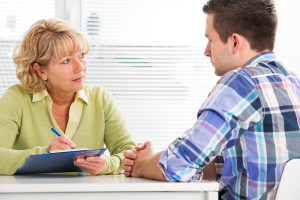- Calls to this hotline are currently being directed to Within Health, Fay or Eating Disorder Solutions
- Representatives are standing by 24/7 to help answer your questions
- All calls are confidential and HIPAA compliant
- There is no obligation or cost to call
- Eating Disorder Hope does not receive any commissions or fees dependent upon which provider you select
- Additional treatment providers are located on our directory or samhsa.gov
Know When to Get Help During a Severe Eating Disorder Relapse

Recovery can take practice and patience over several years of mindfulness, practicing coping skills, and treatment. Both care and aftercare are essential for gaining an eating disorder free life.
How to Know if You Are in a Severe Relapse
First, know that relapses happen at a progressive rate. You may feel that things are going okay and you are sticking to your recovery plan. Eating disorders can be sneaky and steadily start to change your behaviors and thoughts in small ways [1].
First, your thoughts and feelings may change to ideas around body image, weight, body shape, food, and dieting.
You may start to think about ‘safe foods’ and find days that you are not following your meal plan.
The restriction may start to occur as well as compensating behaviors. Loved ones may tell you that they are concerned about your current isolation and eating patterns. You may be exercising more, and obsessively thinking about dieting and weight control or loss.
Another sign of a severe relapse is also when you are being dishonest with your treatment team. If you are hiding behaviors of relapse, meals or snacks missed, purging behaviors, or binging, then you are in the midst of a decline in your eating disorder.
Feeling overwhelmed, and overstressed is another sign of relapse. Turning to eating disorder behaviors instead of healthy coping skills and strategies can lead to further eating disorder control.
If you are struggling with severe relapse, you may find yourself skipping meals, engaging in food rituals, or starting to isolate self during meals or avoiding eating in front of others [3].
Family and loved ones may notice that you are engaging in food rituals, or choosing foods for unrealistic reasons. You may notice yourself or others may comment on the fact that you start cutting out food groups or a specific category of food.
Increasing intake of water or soda instead of food is also a sign of a severe relapse. Individuals may also begin to engage in binging and purging behaviors or overeating and hiding evidence of binging episodes.
 You may begin to exercise more often and obsessively. You may find that you might tire more easily, or have sensations of passing out during exercise as it occurs more frequently.
You may begin to exercise more often and obsessively. You may find that you might tire more easily, or have sensations of passing out during exercise as it occurs more frequently.
Frequent weighing, excessive worry that you are losing control over self, and/or hopelessness about recovery is all a part of relapse.
It is natural to relapse but it is also important to seek treatment and help when you are going through one.
It can help you identify triggers, understand why your thoughts and behaviors feel more satisfying than healthy strategies, and get back on track with your recovery process.
Your mood may change and become more irritable and deny the severity of your disorder. If others try to talk to you about their concern you may become angry, isolate, and push them away.
It may be difficult to express emotions and escape the pain of feeling emotions by turning to eating disorder behaviors. For some with eating disorder relapse, comes self-harm behaviors. It can be a way to cope with overwhelming feelings and stress.
It is also a way for individuals to punish himself for feelings of failure. It can help an individual become grounded in an unhealthy way. For some sexual trauma is part of an eating disorder past, and self-injury is common.
What to Do if You Are in Relapse
First and foremost seek treatment and be honest with your professional eating disorder treatment team [1]. Being able to confront your fears and seek guidance from your therapist, nutritionist, and peers can help you get back on the recovery track and focus on your self-care.
Remember that a severe relapse does not mean failure. Relapsing is learning from your setbacks and moving forward. It is continually learning from the past and looking to the future to prepare for triggers and situations.
It can also to say things such as, “I had relapsed before and survived, and I will get through this again,” and “this is a side-step on the road to my recovery.” Be kind and compassionate with yourself.
 Get an appointment with your nutritionist to work on adjusting your meal plan. When restricting dieting starts, it can bring on fad diets, or fasting behaviors. It can cause serious relapse behaviors.
Get an appointment with your nutritionist to work on adjusting your meal plan. When restricting dieting starts, it can bring on fad diets, or fasting behaviors. It can cause serious relapse behaviors.
Being able to work on fueling your body in a healthy way can help with mind nourishment.
Having your body and mind more stable, you can take in and practice healthy coping skills and therapeutic tools more appropriately.
If after a few follow-up appointments with your treatment team, and relapse is still occurring, it may be time to think about a higher level of care than outpatient care. Looking into Intensive Outpatient Programming, or Partial or Residential treatment may be needed.
Sometimes with relapse it can be necessary to step away from life responsibilities and gain strength through supportive treatment staff and peers experiencing similar struggles. With reduced eating can come underlying issues such as depression and anxiety. Understanding that an increase in these mental issues can be another sign of a relapse.

Many individuals suffer from relapse episodes during recovery, and it is important to remember that support systems and treatment teams are available to assist and support your recovery process [2].
Relapse behaviors will start slowly and take over a person’s well-being and life. It can be difficult for many working recoveries find it challenging to manage in everyday life with social pressures, extreme focus on looks and beauty as a standard for perfectionism.
Having instant access to social media and others seemingly perfect lives can also be triggering to those who are working on eating disorder recovery.
With anorexia nervosa, a severe relapse can be dangerous. It can mean severe restricting and overexercising as well as malnourishment. Remember that a severe relapse can be deadly and seek professional help is essential in regaining recovery.
 About the Author: Libby Lyons is a Licensed Clinical Social Worker and Certified Eating Disorder Specialist (CEDS). Libby has been practicing in the field of eating disorders, addictions, depression, anxiety and other comorbid issues in various agencies. Libby has previously worked as a contractor for the United States Air Force Domestic Violence Program, Saint Louis University Student Health and Counseling, Saint Louis Behavioral Medicine Institute Eating Disorders Program, and has been in Private Practice.
About the Author: Libby Lyons is a Licensed Clinical Social Worker and Certified Eating Disorder Specialist (CEDS). Libby has been practicing in the field of eating disorders, addictions, depression, anxiety and other comorbid issues in various agencies. Libby has previously worked as a contractor for the United States Air Force Domestic Violence Program, Saint Louis University Student Health and Counseling, Saint Louis Behavioral Medicine Institute Eating Disorders Program, and has been in Private Practice.
Libby currently works as a counselor at Fontbonne University and is a Adjunct Professor at Saint Louis University, and is a contributing author for Addiction Hope and Eating Disorder Hope. Libby lives in the St. Louis area with her husband and two daughters. She enjoys spending time with her family, running, and watching movies.
References:
[1] Slips, Lapses and Relapses. (n.d.). Retrieved September 01, 2017, from https://www.nationaleatingdisorders.org/slips-lapses-and-relapses[2] Home. (n.d.). Retrieved September 04, 2017, from http://www.mirror-mirror.org/relwarn.htm
[3] Eating Disorders Warning Signs. (n.d.). Retrieved September 04, 2017, from https://www.anred.com/warn.html
The opinions and views of our guest contributors are shared to provide a broad perspective of eating disorders. These are not necessarily the views of Eating Disorder Hope, but an effort to offer discussion of various issues by different concerned individuals.
We at Eating Disorder Hope understand that eating disorders result from a combination of environmental and genetic factors. If you or a loved one are suffering from an eating disorder, please know that there is hope for you, and seek immediate professional help.
Published on December 4, 2017.
Reviewed By: Jacquelyn Ekern, MS, LPC on December 4, 2017.
Published on EatingDisorderHope.com

The EatingDisorderHope.com editorial team comprises experienced writers, editors, and medical reviewers specializing in eating disorders, treatment, and mental and behavioral health.

